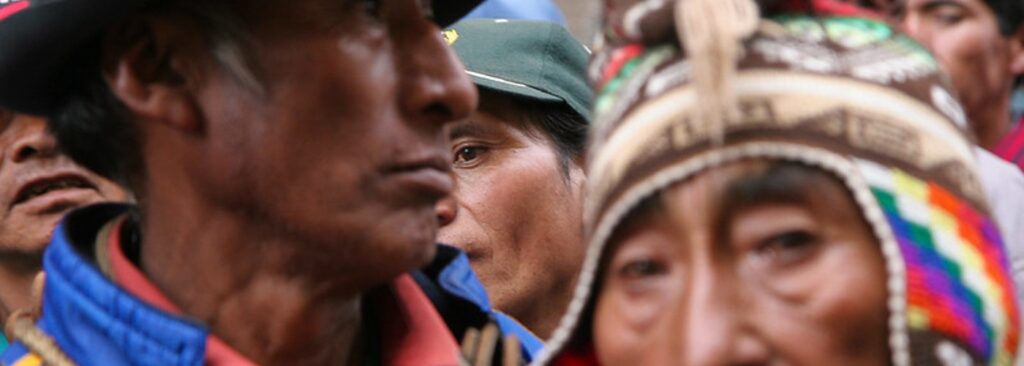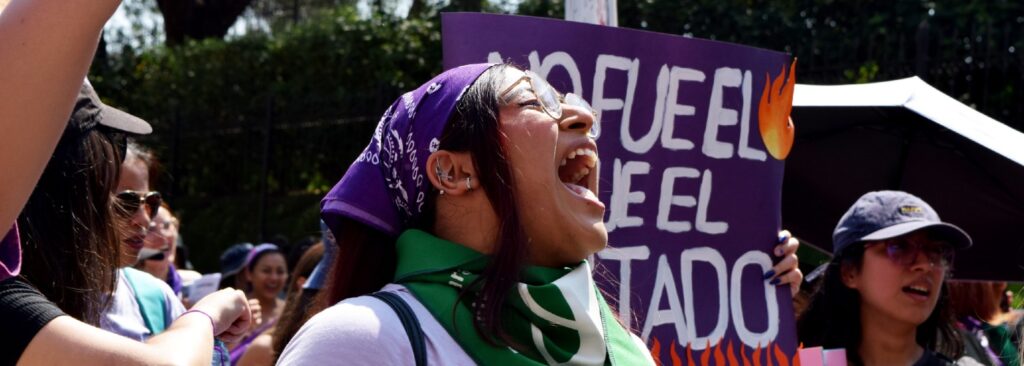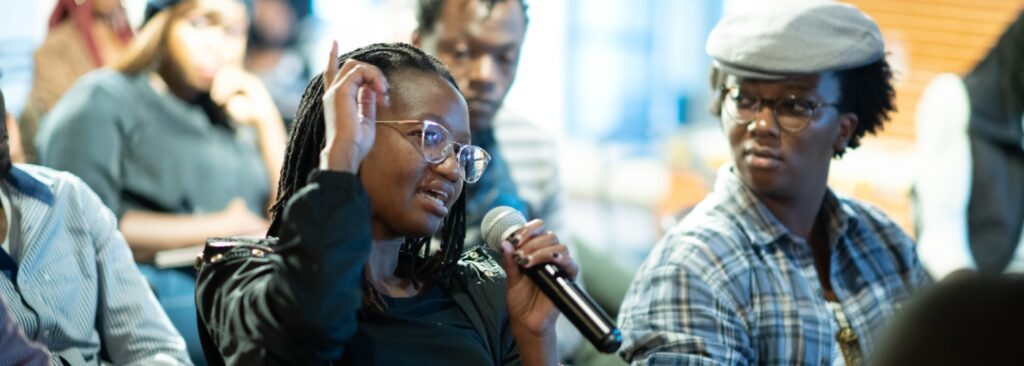Lawsuits and funding cuts from governments such as the US and the EU, aimed at restricting free speech, are putting pressure on global democracy. Activists, journalists and civil organizers face legal threats designed to stifle dissent as well as deliberate financial restrictions. Civil society groups urgently need legal protection and increased support to continue to defend democracy.
By Marco De Ponte, CEO Hivos
Around the world, we have been witnessing a dangerous shift toward authoritarianism that is now jeopardizing even established democracies like the US and many European countries. Here, the civic space where free speech, press freedom, freedom of assembly, and human rights advocacy have long thrived is being increasingly violated. Some particularly insidious newer restrictive tactics are strategic lawsuits against public participation (SLAPPs) and funding cuts used to undermine civil society organizations. As a global human rights organization, Hivos is alarmed by these developments and their threat to democracy.
The rising threat of SLAPPs and the risks to freedom of expression
SLAPPs are lawsuits specifically designed to silence critics, intimidate editors and journalists and stifle dissent. These lawsuits, often filed by corporations, politicians or powerful individuals, drain resources from civil society actors and have a chilling effect on free speech.
In the US, a high-profile SLAPP hit Greenpeace with a massive financial fine of $660 million USD in February 2025 for the organization’s environmental advocacy regarding the construction of the Dakota Access Pipeline. This is not the first time that Greenpeace has faced lawsuits of this kind. In the Netherlands, Greenpeace is facing claims from Nauru Ocean Resources Inc. deep-sea miners, who are seeking an immediate halt to the peaceful protests against deep-sea mining exploration or a fine of $11.3 million USD (10 million EUR) if the protests continue.
In Europe, SLAPPs have been primarily used to target journalists and media organizations. The Coalition Against SLAPPs in Europe (CASE) reports that between 2010 and 2023, there were a total of 1,049 SLAPPs in Europe based on national defamation laws. As of 2023, they were mostly filed by businesses (45%), politicians (35.5%) and state-owned entities (10.8%). The threats SLAPPs represent range from financial and logistical to violent. One of the most notorious examples in Europe was the 2017 assassination of the journalist and activist Daphne Caruana Galizia in Malta. At the time of her death, she was facing 48 libel suits.
The EU Parliament recognized the urgency of this issue and published an anti-SLAPP directive in 2024. The directive is now under discussion in the Netherlands, which must transpose it into national law by May 2026. The directive sets the minimum standards EU member states must uphold to protect against abusive litigation. While this is a small step in the right direction, there are concerns that the Dutch government is not acting quickly enough to protect activists and other SLAPP targets.
The financial pressures against civil society
While civil society faces legal attacks, critical funding is also drying up. As an organization established in the Netherlands and working around the world, we have seen the impact of the cuts first-hand. Some include the Netherlands’ cuts to Official Development Assistance (ODA) here as well as the global impact of the USAID funding freeze and the assistance cuts across the European Union. These cuts have significantly disrupted or suspended key human rights, press freedom and gender, diversity and climate programs. They are not just bureaucratic decisions, but political ones that directly harm the ability of civil society to operate and defend democratic freedoms.
The sudden loss of programs supported by foreign assistance is leaving activists and journalists more vulnerable to repression. The EUSEE survey on the impact of the US funding freeze and the CIVICUS 2024 Global Findings report both confirm that the enabling environment for civil society is rapidly shrinking due to these cuts. Data from the EUSEE survey shows that the US decision to reduce foreign aid has become an excuse to further restrict civic space. CSOs increasingly face public attacks fueled by misinformation and negative narratives, as well as restrictive legal frameworks and increased scrutiny. CIVICUS’ findings led to the Netherlands being downgraded to “narrowed” status, and the US is now on the CIVICUS watchlist due to serious concerns about civic freedoms. In the Netherlands, even the Council of State (RvS) has warned that Dutch democracy is under pressure and needs to urgently protect it. These alarming trends demand urgent action.
How can we save our rights as civil society?
Hivos calls on the truly democratic policymakers in the governments of the Netherlands, the US and the EU Commission to take action against the use of SLAPPs as tools of intimidation. In Europe, the robust implementation of the EU’s Anti-SLAPP Directive must be a top priority to ensure that national laws prevent corporations and individuals from abusing legal systems to silence dissent. Press freedom must be actively defended by protecting journalists and civil society actors from legal harassment, smear campaigns and physical threats. Furthermore, governments everywhere must foster a political and social climate where informed and reasonable dialogue, including dissent, is valued as part of a healthy and equitable democracy. Only then can civil society counter disinformation that delegitimizes activists, as well as build international alliances that support those fighting for social justice.
Civil society cannot survive without resources. We must recognize the need for immediate emergency financial support, either new or redirected funding, to stabilize organizations under pressure. This, alongside longer-term, flexible funding mechanisms, will allow CSOs to remain resilient. Beyond funding, stronger coordination is essential to sustain efforts in democracy, human rights and media freedom. Government donors and philanthropic funders must invest in the capacity of CSOs to advocate for themselves, communicate their impact and build public trust. This includes supporting safe spaces for dialogue, leadership development and cross-sector partnerships that strengthen civic networks. Civil society organizations must also build critical mass by forging strong alliances amongst themselves.
The erosion of civic space is not an abstract issue – it has a direct impact on the ability of civil society to fight for justice, human rights and democracy. In the face of rapidly shrinking civic spaces across the global stage, we urgently call on established democracies to uphold democratic values and support the CSOs that fight for these values. SLAPPs and funding cuts are two sides of the same coin that serve to weaken civil society and strengthen authoritarian forces. If we don’t defend these values together now, free speech, press freedom, freedom of assembly and human rights advocacy as we know them may soon become a thing of the past. We only have to look to the US to see how quickly it can start.
Originally published in the Fair Observer.




